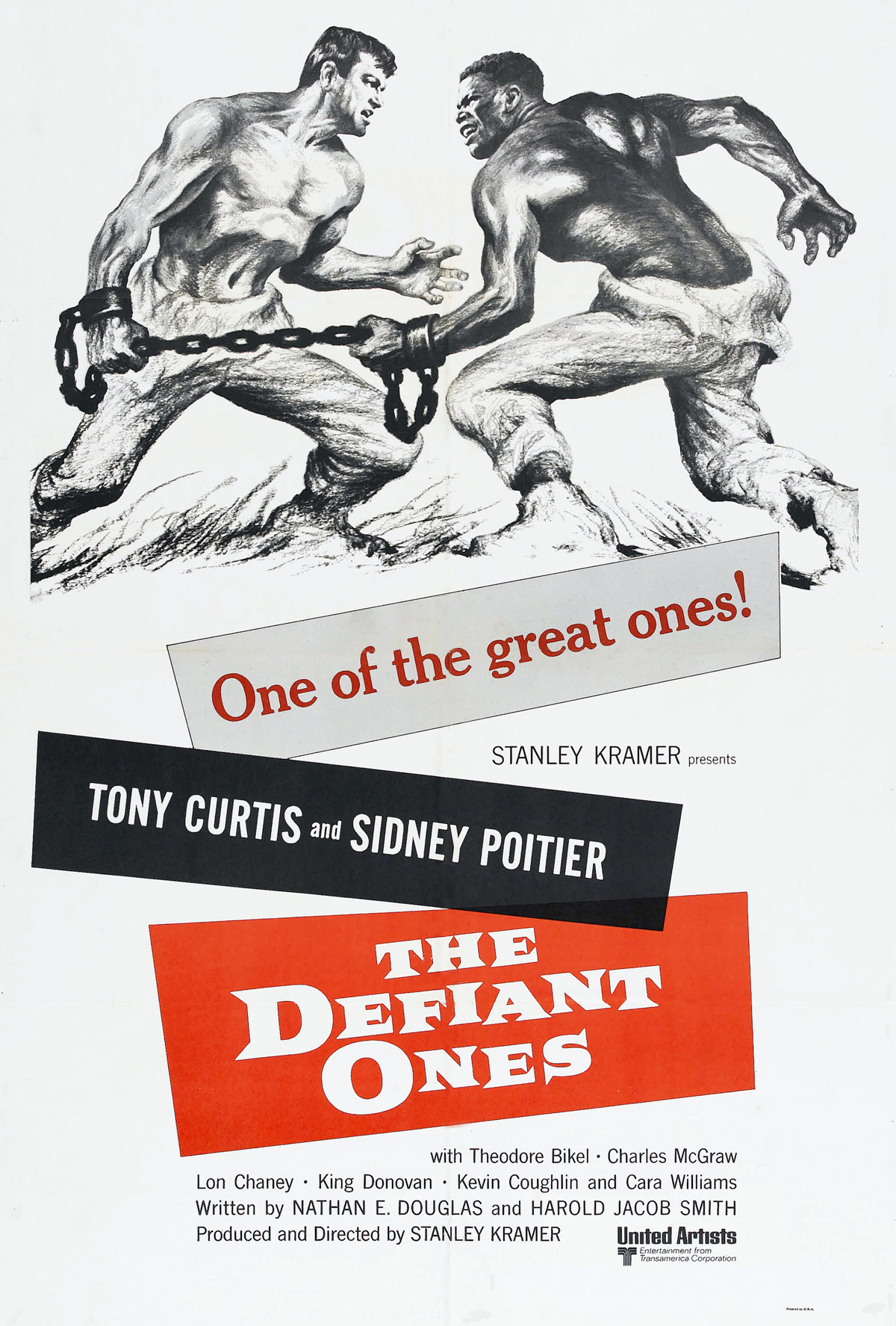
- Golden Globe Awards
1959 – Drama: The Defiant Ones
It was a spectacular night, that March 5, 1959, at the Ambassador Hotel’s Coconut Grove, for the Golden Globe Awards. The Defiant Ones defied expectations by winning Best Picture, Drama (Cat on a Hot Tin Roof was also competing, and considered perhaps the favorite coming in). Tony Curtis and Sidney Poitier, both nominated as best actors, were at their appealing best. They were “defeated” by David Niven in that category (for Separate Tables), and yet their film, directed by Stanley Kramer (also nominated as director; Vincente Minnelli won for Gigi) was the most talked about, revered and influential, because The Defiant Ones talked about race relations in a very poignant and humane way, touching a very delicate nerve in the social and political fabric and discourse in the U.S. at that time.The universality of the theme (a black man and a white man, two convicts, escape from prison while shackled together, and must learn how to cope with each other, eventually learning to like and love one another) is still resonant. The Defiant Ones would be later remade as a female “blaxplotiation” picture in 1973 (Black Mama, White Mama). Curtis and Poitier were brilliant at portraying the two sides of a humanity that refused to join in a harmonic whole, but who learned, on the way, to become brothers. The two actors always professed to have become great friends. Their mutual respect was evident at the Golden Globe Award ceremony, with the cameras and photographers insisting on their hugs, smiles, and banter.The Defiant Ones was also nominated as “Best Film Promoting International Understanding”, a category that the HFPA was very proud to have created as an example of what the organization was also trying to achieve from the humanistic point of view, something transcending the mere artistic and entertainment achievement. That special award went to The Inn of the Sixth Happiness. In a very similar way, Stanley Kramer’s film (like his subsequent Guess Who’s Coming to Dinner, in 1967) left a deep mark in the way American society thought about race relations.

